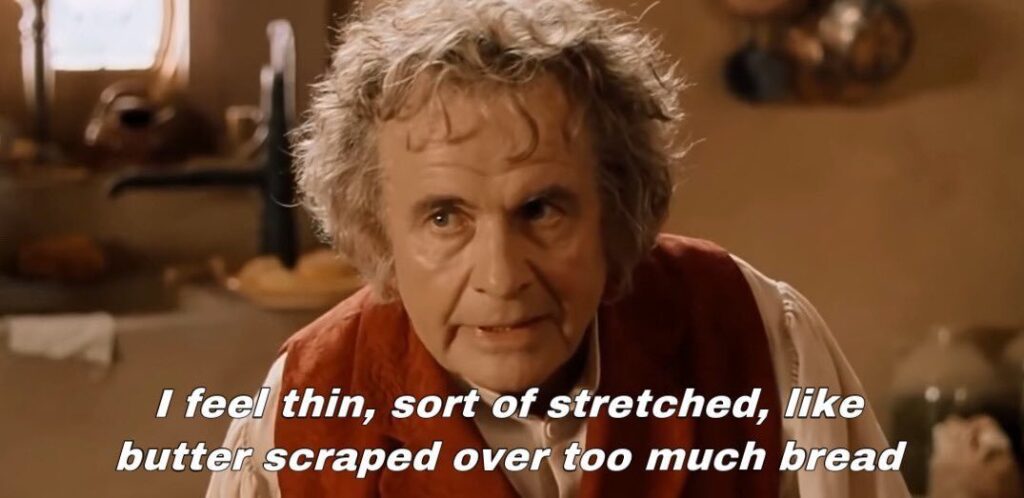You cannot face it steadily, but this thing is sure,
— T.S. Eliot
That time is no healer: the patient is no longer here.
Over the past several months, two decades-old charities in Crawford County, Kansas, have appeared before local governments seeking public funds to help them stay afloat.
In September, the SEK Humane Society, a no-kill animal shelter, shared the “difficult but important news” that it was “at risk of closing [its] doors at the end of the year” because of financial difficulties. It appeared before the Pittsburg City and Crawford County Commissions to request their support.
The SEK Recycling Center, a no-kill recycling center, followed suit in October, relaying that it “will likely close before the end of the year without significant community and public financial support,” and requesting help from the city and county commissions.
Seemingly in the nick of time comes Match Week, an annual fundraiser of the Community Foundation of Southeast Kansas (CFSEK) in support of participating organizations’ CFSEK endowments.
But there’s a catch: the key word there is endowments. Endowments are designed to provide long-term—not immediate—financial support for the organizations they benefit. The SEK Humane Society and SEK Recycling need money now or in the very-near future, not slowly over the course of years.
In short, Match Week offers a bad way to support these distressed organizations. (On the other hand, supporting them directly is a great way to help them through this period of uncertainty!)
How endowments work
Endowments are designed to provide financial support over the long term. They work by spreading out donations over many years, investing them to provide further growth in the meantime.
At CFSEK, the current policy is to spread endowment spending out over 20 years. That is, each year endowment funds at CFSEK are permitted to distribute only 5% of their balance.
If you were to donate $100 to a CFSEK endowment this year, you should expect that $5 will be made available from your donation within the next 12 months, then another $5 the year after that, $5 more the year after that (maybe even $6, depending on market performance), and so on.
The goal is to spread out the spending so much that the endowment fund earns more in investment income each year than it pays out. In that case, the fund can keep providing revenue to the organization it supports indefinitely—even without the need for future donations.
It’s a cool concept, but what if an organization just needs your $100 gift right away?

Let’s use a practical example
The Morning Sun reported on a presentation last week by SEK Recycling to the Crawford County Commission about its financial situation. According to the paper’s reporting,
[f]or 2025, the center has generated $10,000 per month in revenue. However, expenses are double that for labor and overhead (which includes mortgage, insurance, utilities, etc.), meaning the center is running a $10,000 deficit each month.
So, the Recycling Center needs an additional $120,000 per year to break even, assuming no further changes to operations.
To raise that amount through direct donations, it would need to raise—this shouldn’t surprise you—$120,000.
In contrast, to raise $120,000 in funding over the next year through donations to its endowment, the endowment would have to receive 20 times that amount—$2.4 million.1
Look at it another way: if SEK Recycling’s endowment receives $120,000 during Match Week—the amount the organization needs to break even over the next year—then we should expect SEK Recycling to actually receive no more than $6,000 from those donations during 2026—less than what it needs for a single month.

What about the match?
The Match Week proposition isn’t quite that dire. The Foundation is offering $100,000 as a match for community contributions, and it allows the organization benefitted by each fund to request an immediate distribution of its share of the match amount.
But there are some caveats to that offer.
First, it’s not a dollar-for-dollar match. Community contributions have always exceeded the Foundation’s match, meaning that it has always had to prorate the amount awarded to each participating endowment. The match rate has ranged from $0.25 – $0.40 for each dollar in community donations.
Second, no fund is allowed to take more than 20% of the total match pool. That means that, no matter how much an endowment raises in community contributions, its match will be limited to $20,000.
Not to put too fine a point on this, but what it means is that if people donate the $120,000 SEK Recycling needs to survive another year, but to its endowment rather than directly to SEK Recycling, then the organization could only request an immediate distribution of $20,000—enough to survive for just two more months.
So should supporters of troubled nonprofits skip Match Week?
Not at all! Just use Match Week as a reminder to give directly to the SEK Humane Society or SEK Recycling Center rather than to CFSEK’s endowments for those organizations.
You’ll miss out on the match, but you’ll give those organizations substantially more in immediate financial assistance, which is what they need right now.

In fact, this choice is even more of a no-brainer for the SEK Humane Society, which has a $25,000, dollar-for-dollar match lined up for direct donations through November 20. You can find more information about how to donate toward this match on Facebook.
To donate directly to the SEK Recycling Center, click the Donate button at the top of their website.
- In fact, it’s worse than that. The Community Foundation calculates the spendable amount for its endowments as 5% of the average ending balance over the preceding 12 quarters. This serves to further slow distributions during the first three years after a donation comes in. ↩︎
